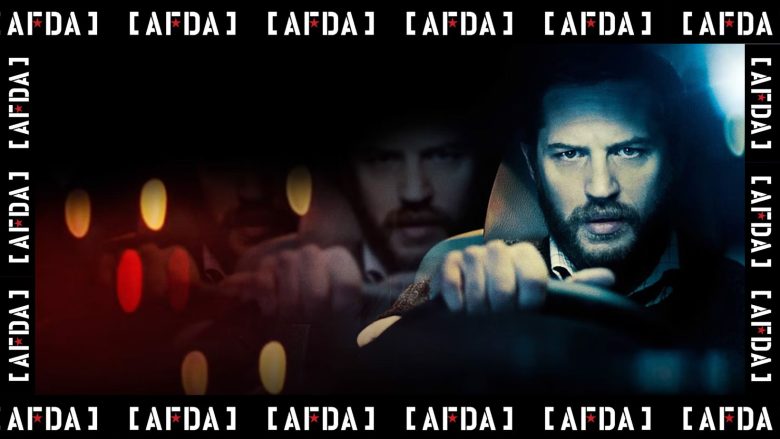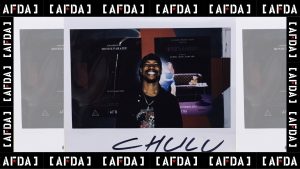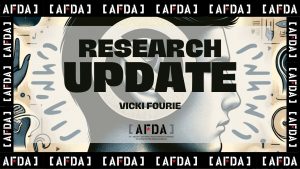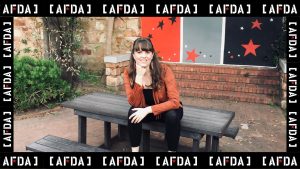As part of my Honours studies at AFDA, I had to write a 2,500 word textual analysis based on the film Locke (2013), with Tom Hardy as the main (and only) protagonist.
*
LOCKE
Textual Analysis
Vicki Fourie
What is cultural studies? A broad definition of this term describes it as “a field in academia that analyzes the interaction between anthropological, political, aesthetic, and socioeconomic institutions… this field looks at how culture is shaped and formed.” It also “examines the complex interactions of race and gender and how they shape a person’s identity.”
In the case of Locke, a 2013 film written and directed by Stephen Knight, cultural identity is explored in a way that breaks the mold and challenges the status quo. This film does things differently. Surprisingly, it works rather well.
Locke, which is only 85 minutes long, is a short and powerful film. My qualitative method of analysis for this text was to watch the film a few times to get a clear understanding of what it is about. I also read the script while watching the film, to see it from a screenwriter’s point-of-view as well.
At first glance, there is not a lot going on. The set-up is almost too simple: a lone man driving his car from start to finish. However, we are quickly proven wrong. Like the long road that is before him, Locke—the main and only actor in the film—also has a long night ahead of him. A series of phone conversations will change the course of his life forever.
Ivan Locke’s personal and social identity is quickly established. From the first few scenes, we gather that Locke is a dedicated family man and father. He is also well-established in the workplace, having worked his way up through the years to become the sole manager of a construction company. In short, Locke is a wealthy, hard worker and a man who has proven himself to be trustworthy time and time again.
Locke is also a classic example of a middle-aged, white male of European origin. We might think that life was handed to him on a silver platter. His first language is British English; however, his emotional development was jarred by being branded as a ‘bastard’ by his father. This is something he thinks of often, for it has profoundly shaped his identity. It has a strong effect on how he views himself and the world around him. He is adamant that he doesn’t want to make the same mistakes his father did in the past. Locke’s identity is shaped by his father’s culture; whether or not he chooses to accept or reject this, we find out as the film progresses.
The first few shots of the film open up at night at an industrial plant. Machinery sounds fill the background noise. Ivan Locke takes off his industrial gear, gets into his BMW, and starts his car. The wheels screech as he makes his getaway. Immediately, we get a sense that this is a man on a mission. But why is he in a hurry, and where exactly is he headed?
As the robot turns red, Locke stops and absent-mindlessly puts on his indicator to the left. When the light turns green, Locke does not move. A truck behind him hoots not once, but twice. Only then does Locke change the car’s indicator to the right. He abruptly turns to the right. The following questions come to mind, but they leave as quickly as they arrive: Where was he headed in the first place? What changed his mind? Where is he going now?
Three minutes later, Locke makes his first phone call via the car’s Bluetooth to a woman named Bethan, whose phone goes straight to voice mail. Locke leaves a message: “I’m on my way. It will be about an hour and a half unless there is traffic…” He also mentions nurses and doctors; now we know Bethan is at the hospital. Who is Bethan, and why is she there? Is she his wife, his sister, or someone else entirely?
The next call is to his boss, Gareth, regarding a concrete delivery that is to take place in the morning. The secretary answers instead. There is an urgency in Locke’s voice as he asks her to tell his boss to call him back as soon as possible.
The third call is to his older son. Now Locke is visibly upset and worried. This is the first moment we notice something wrong in Locke’s perfect world. He tells his son he will not be home for “the match”? Locke ends the conversation by asking his son to tell his mother to phone him back. Locke is now fidgeting in the car, nervous and visibly stressed out. We now know that the woman in the hospital is not his wife.
It is Locke’s turn to receive a phone call. It is Donal, one of his employers. Donal adamantly asks Locke, who is the site manager, why he will not be on the site in the morning to do his job. Donal wants to know what exactly the family crisis is. The dialogue in this film is minimal, and the conversations on the phone quickly get to the point. The screenwriter had a clear idea of the story and kept to the story-line. “I do not have a choice,” Locke replies to Donal.
At least Locke promises to guide Donal through everything that needs to be done. “On the phone?” Donal asks. Have you gone mad?” At 5:45 tomorrow morning, 355 metric tons of wet concrete will be delivered on-site. With 218 trucks from all over the country coming, Locke must be there. But he will not.
Donal will have to pick up the slack for his boss, and he still needs to figure out why. He is understandably upset, for he is “only a concrete farmer.” “I have no choice,” Locke repeats. Life is full of choices – small and big ones. Why does Locke feel like he has been pushed into a corner, with no way of escaping this situation?
We should feel claustrophobic right now since Locke is still in his car. The production design for this film has been carefully planned so that we still feel like the story is moving forward. The ambiance surrounding the car creates a visual environment and feel of the story still moving forward. There is still life outside of this car.
After this tense conversation, the camera cuts to the road. We see the fast movement of the pavement as the car speeds along, and we get the sense that the story is starting to speed up.
Locke phones Bethan again. We still need to be made clear who Bethan is, and why she is connected to Locke. Is it his sister? A friend?
“I’m in the labour ward… I’m five centimeters…” Bethan tells Locke. Suddenly, it becomes clear that a baby is on the way. But whose baby is it?
Moreover, why does it concern Locke? Then, the shocker is revealed. Bethan asks Locke, “Have you even told your wife that someone’s having your baby?” It is eleven minutes into the film, and now we are intrigued. “I’m about to do that,” Locke replies.
This film is about Locke but also about everyone who will be impacted by the birth of this baby. Locke’s job, wife, and life are now on the line. How is it all going to work out? Locke has less than one hour and thirty minutes to sort it all out, but it might take much quicker for his life to fall apart.
“Do you love me?” Bethan asks Locke. “How could I love you?” Locke scoffs. The line disconnects, and Locke sighs. What is the story behind this pregnancy? How did it happen? Why did it happen? We will have to watch patiently to see how the answers will unfold. The sound effects in this film create an ambiance of tragedy waiting to happen, evoking emotions in the audience of this man’s downfall.
The next call will be critical. It is Locke’s wife – Katrina – calling him. He lets it ring for a few seconds, agitated at what is yet to come. Having put off this conversation for as long as he could, he cannot hide it anymore. He answers, and Katrina is oblivious to the shit that is about to hit the fan in their marriage. “I’m not coming home,” Locke explains to his wife.
Locke shares his story of when and how he made a poor choice in a moment of weakness. After one too many drinks, he had a one-night stand with a 43-year-old lonely woman. This resulted in a pregnancy, and the woman – Bethan – is about to give birth tonight.
The line disconnects abruptly. Why did it take so long for Locke to tell Katrina? Why did he put it off until the last minute? Tom Hardy – the actor who plays Locke – gives a stellar performance as the camera remains focused on his emotions. As viewers, we are hooked and want to know how this man’s story will end.
Locke has tears in his eyes as the consequences of his choices finally hit him. His wife now knows what he did. What will this mean for their marriage? Can their marriage survive something as devastating as a one-night stand? A moment of weakness? Medium shots are rarely deployed in this film, but when it is, it is intentional. Throughout the film, we sit right next to him in the car, and we experience all his moments of crisis. When medium is used, we are reminded that he is in a car and that the world is moving on around him.
The next call could not have come at a worse time. Locke has to convince his boss – Gareth – of his reasons for not being at the site the following day. “The truth is, tonight I’m going to become a father.” Locke tries to convince Gareth that Donal is more than capable of running the whole procedure. “This is not happening… Don’t you fucking dare say that to me!” Gareth explodes. “Nothing is a joke anymore,” Locke retorts, and this is painfully true because now his marriage is in deep trouble. Gareth cannot believe that Locke is willing to drop his job just because he wants to take responsibility for the mess he caused. “That is my decision I have made,” Locke says defensively. “I am going to do the right thing.” Gareth threatens Locke with his job, which is now on the line. “I have made my decision,” Locke repeats, and the line goes dead.
Once again, cultural identity is addressed here. The material cultural world places value on jobs, and puts a strong focus on ‘showing up and doing your job’. Locke is having a personal crisis, but his boss only wants him to deliver. Money makes the world go around, and it doesn’t stop for one little crisis. This is a value that usually gets ingrained into us from an early age: go to school, and do your homework. Everything else can wait.
Socialization always starts at a very early age. We adapt and learn according to how we view the world around us. What was Locke’s father like? Was he a workaholic? Did he place any value on family life? We don’t know, for the film doesn’t make that clear. But what is clear is that Locke wants to change the way he was brought up. He doesn’t want to adopt the cultural norm that he was subjected to as a child. He wants to do things differently.
Why is Locke adamant that he should “do the right thing”? This next scene gives us a look into Locke’s life and psyche backstory. Locke has a momentary breakdown and imagines his father sitting in the back of the car. “What the fuck are you looking at?” Locke asks his ghost of a father. “You’re laughing, aren’t you? Laughing at my predicament. It is a familiar predicament to a man like you, isn’t it, Dad? Like father, like son.” Locke is adamant that he will make choices that are different from his father’s. Locke is willing to take responsibility for the mess he made. “I want you to watch tonight,” Locke threatens his dead father. “It’s me driving, not you. I will be there to take care of my fuck-up.”
As the film progresses, it becomes clear that Locke has no emotional connection to Bethan. He is simply doing this out of duty and responsibility. Is this a good or bad thing? Police cars speed by, their warning lights and sounds blazing. One cannot help but think this parallels what is happening in Locke’s life at that moment. Everything is happening in fast and slow motion all at once. The car crash is coming, and there is nothing Locke can do to stop it.
Now comes the critical point in the film. Locke phones his wife, and tells her, “I want to move to a practical next step.” This is how Locke makes sense of his life and the mistakes that he has made. The problem is, that Locke has had seven months to work through this fatal mistake. His wife only found out about this a few minutes ago. Now Locke wants to be “practical”? Locke tries to justify his actions by reminding Katrina what had happened to his dad. He calls his dad a bastard. “Ivan, it’s you that’s the bastard. It’s the baby that’s a bastard,” Katrina says. “No, I will give the baby my name, and it will see my face,” Locke retorts. The damage is already done. Katrina sadly wishes that this was not their story, that this was not happening to them. She cuts off the phone.
My findings about this film are that Locke is someone who is caught between the devil and the deep blue sea. He wants to do the right thing, even if it costs him his family and job.
“I will do what needs to be done, even if they hate me or love me,” Locke declares to his father’s ghost. “Look and fucking learn.”
As the night progresses, and the road to the hospital gets shorter and shorter, one is filled with a dread that his life will come to a crashing end. And it does. He loses his job and his home. Now, he has nothing left except for a child that he does not want to be branded as a “bastard” in the same way that he was branded. He hopes to do things differently; he wants this child to have a different identity and future.
The most heartbreaking scene is where Locke converses with this older son. His son knows that something awful has happened; he gets the feeling that their family will never be the same again. Locke is now sacrificing his one family for another family that is yet to come. “Are you coming home?” his son asks him. “Where else would I go?” Locke replies. Locke is indeed caught up in a tangled web, with no way out of it but to drive through. The tears sting Locke’s eyes as he tries to focus on the road and keep on driving.
Locke sums up the film’s story-line by laying out the facts to his former boss, Gareth: ‘When I left the site just over two hours ago, I had a job, a wife, a home. And now I have none of those things left. I just have myself and the car that I’m in. And I’m just driving, and that’s it.’
Locke’s norms – which are his practices and/or standards – have changed. His character arc shows it clearly; he has grown and is no longer the same man he was at the beginning of the film. His values have also shifted drastically, which is now shown in his new beliefs and attitude. As Locke leaves the highway, his final phone call is to Bethan. He stops by the side of the road and listens to the sounds of a newborn baby. “Ivan, will you come?” Bethan asks him. “Yes,” he replies.
In conclusion, this film is a clear example of how we are most likely the result of the choices our parents make for us. However, as adults, we are the result of the choices we make for ourselves. Yes, our parents’ choices still influence us, but it does not have to dictate the rest of our lives.
The central theme of this film is focused on how our choices shape our identity. Choices and decisions are what make up the sum of our lives. One mistake can unravel a person’s life, and make it spin entirely out of control.
Cultural identity is often viewed as “an essence; it is something we are born with, that exists at our core, that is unchanging.” Try as hard as he does not want it to happen, Locke seems to choose to let his father’s choices dictate his life and his future. Are the results good or bad? It remains yet to be seen as Locke breathes deeply and drives off into the night.
*
BIBLIOGRAPHY
IvyPanda. (n.d.). Free Cultural Studies Essay Examples & Topic Ideas | IvyPanda®. [online] Available at: https://ivypanda.com/essays/subject/cultural-studies/ [Accessed 24 Apr. 2024].




Comments
Pingback: AFDA | Creative Differences | May 2024 – VICKI FOURIE